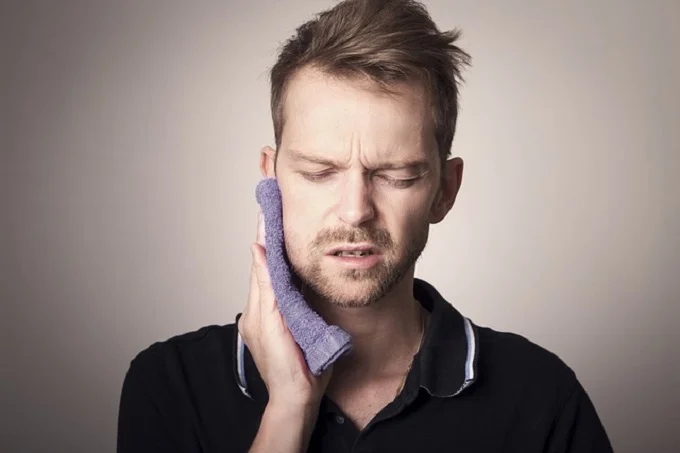9 things that can cause jaw pain

Jaw pain is caused by a variety of factors other than wounds. It exhausts you and, in some situations, prevents you from speaking or eating. To get rid of jaw pain, you must first figure out why it started.
Some of the most prevalent causes of jaw pain
1. Sinus problems
The jaw joints are in close contact with certain sinuses. The sinuses may enlarge, exerting pressure on the surrounding tissues. To get the latest stories, install our app here
Rhinosinusitis is the most frequent inflammatory response to viral infections. Bacteria, fungus, and nasal polyps may all cause it.
2. Trigeminal neuralgia
This is a condition in which we get pain in the region of our faces. The trigeminal nerve is constricted in neuralgia, causing increased sensitivity and pain. It’s also painful to speak. Smiling, eating, and making facial expressions are all examples of small actions that might cause discomfort. To get the latest stories, install our app here
The pain comes in waves, which is more intense than the last. Their duration lengthens as well. Fortunately, a trip to the neurologist may help ease the discomfort and treat the problem with the meds that he prescribes.
3. Temporomandibular joint and muscle disease
When we move our jaw with this illness, it causes us pain. You may also suffer discomfort while yawning and expanding and shutting your mouth wide, as well as “crunching” when opening and closing your mouth, and malocclusion.
Injuries, arthritis, jaw dislocation, or inflammation are the causes of this condition. In addition, bruxism, a disease in which we grind or clench our teeth in our sleep, is a common symptom of the problem. To get the latest stories, install our app here
4. Headache

Pain in the jaw, as well as the face and eyes, may accompany a headache. A cluster headache is a collection of painful feelings. It is one-sided and may last anywhere between 15 minutes and three hours. On the other hand, Cluster pain is characterized by repeated repeats, which may occur up to eight times each day.
To get the latest stories, install our app here
Tension aches may also cause pain in the jaw. When the muscles in the head and neck are overstretched, this happens. The discomfort is usually dispersed across the head, giving the sensation of a “hoop” or “helmet.” It also has the sensation of a squeezing or pressure rather than an intense onslaught.
5. Gum chewing
Jaw discomfort may be caused by excessive chewing. This is caused to overworking the joints and muscles, which may cause irritation and make moving the jaw difficult. As a result, you should avoid chewing gum in excessive amounts or for long periods. To get the latest stories, install our app here
6. External otitis
It’s a bacterial infection in the canal that connects the eardrum and the ear canal. When bacteria, fungus, or viruses enter the canal, this occurs. This condition is quite common among professional swimmers and those who swim often.
To get the latest stories, install our app here
7. Angina pectoris

This discomfort, which generally occurs on the left side of the face, is an unexpected indicator of a heart attack. Other symptoms include chest discomfort and stiffness, sweat, and the sensation of passing out. Other symptoms include shortness of breath, numbness, and tingling in the left hand. To get the latest stories, install our app here
All of these symptoms indicate that you should get care right away. It’s risky to wait for things to happen independently; instead, contact an ambulance.
8. Infections in the mouth or toothaches
A dental abscess induced by a bacterial infection is often the source of infection. Infections in the mouth may travel to the jawbone, producing discomfort. Because of the tooth and the jaw pain in this instance, you should visit a dentist as soon as possible.
Pain might develop after a lengthy therapy, especially if the area has become infected. Alternatively, in situations where the tooth was not entirely removed, and bits of it remained in the gum – this occurs when wisdom teeth are extracted and are linked to their complicated placement in the jawbone. To get the latest stories, install our app here
9. Injury
The more severe the trauma linked with jawbone destruction, the more painful it is. It is most severe after a fracture or when the bone has been dislocated.
Bruising, swelling, and loose or broken teeth are all indicators of an injury, in addition to pain. Even with minor injuries, though, the pain will be obvious.




